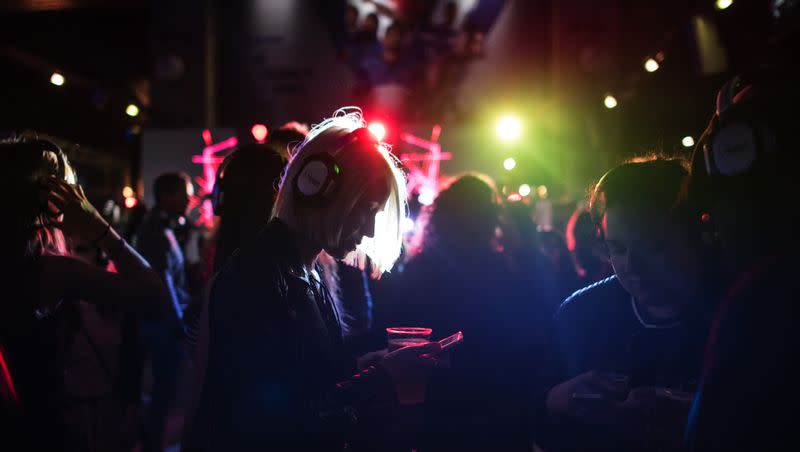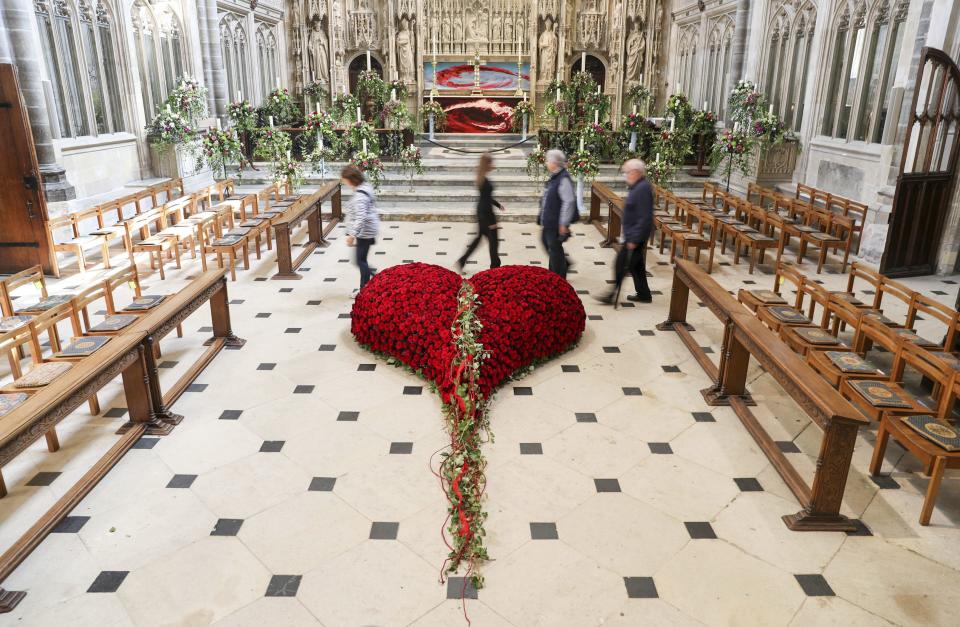Churches are hosting dance parties. Is it a smart fundraising move — or ‘desecration’?

Winchester Cathedral in Winchester, England, was crowded with people Saturday night, but they weren’t praying or singing hymns.
Instead, they were dancing to pop songs and drinking cocktails at a silent disco, an event that involves grooving to music that you hear through headphones while the people around you do the same.
Unusual dance parties like that one are growing more common in England as cathedrals look for new ways to raise money and connect nonreligious Brits to church. But their increasing popularity is fueling a backlash, according to The Guardian.
“A petition opposing the ‘desecration of our historic holy places’ (has) amassed more than 2,400 signatures. In Canterbury, a prayer vigil was held outside the ancient cathedral during a silent disco earlier this month,” the article said.
Related
The cost of cathedrals
In England, as in the United States, church attendance is less common today than it was in the past. As a result, cathedrals are struggling to raise enough funds to cover annual operating costs.
“At Canterbury (Cathedral), the running costs are nearly £11m a year, or £30,000 a day. At Winchester, it is £5.1m, or £14,000 a day,” The Guardian reported.
Cathedrals look to cover as much of their budget as possible with donations, but when they can’t raise enough from community members, they seek out grants or start hosting events, including secular ones like the silent discos that bring in money through ticket sales.
“By generating an income in this way, we can keep the cathedral open. We simply wouldn’t be able to provide a sacred space without our commercial activities, including markets and music events in the cathedral,” said Matt O’Grady, chief operating officer of Guildford Cathedral, which recently hosted its own silent disco event, per The Guardian.
In addition to celebrating the associated influx of funds, O’Grady and other silent disco supporters appreciate that the dance parties bring unchurched people into sacred spaces.
“It will not be to everyone’s taste, but if attending an event such as this helps to change public perception of the place, and assists with knocking down some of the barriers which prevent people from walking through the doors, then it has served a purpose,” said the Very Rev. Sarah Brown, dean of Hereford Cathedral, to The Guardian.

Petition to block church events
As the Very Rev. Sarah Brown noted, cathedrals that host dance parties deal with critics. The petition created to oppose silent discos in Church of England cathedrals refers to the trend as “desecration.”
“Dear Anglican Deans, please stop the discos and make the Cathedrals houses of prayer once more,” it reads.
One critic told The Guardian that cathedrals need to stick to traditional fundraising strategies.
“The best way to raise money would be to make the building work as a cathedral in terms of drawing in worshippers, people who make regular donations. Once it ceases to function as a cathedral and becomes simply an events space, why not sell it?” said Cajetan Skowronski, who organized a prayer vigil outside Canterbury Cathedral during its silent disco event.
But “drawing in worshippers” is not easy and neither is selling church buildings.
Religious denominations in the U.S. have faced pushback when they’ve tried to sell underutilized church buildings, including from people who had years to become a member and never did, as the Deseret News previously reported.
The Church of England’s Canterbury Cathedral hosts a “90s Silent Disco” in Kent, February 2024. pic.twitter.com/fpDkvmUJ6Q
— Future Adam Curtis B-Roll (@adamcurtisbroll) February 19, 2024
Silent discos in churches
Church leaders in England who support the recent silent discos believe they are an asset to the church rather than a desecration.
“There was nothing anti-religious about (Saturday’s silent disco). It was a wonderful, uplifting experience bringing in people who wouldn’t normally come to a cathedral, and everything was back in place for the first service on Sunday morning,” said John Blake, the commercial director of Winchester Cathedral, to The Guardian.
Matt Rooks-Taylor, who reviewed Saturday’s event for the Hampshire Chronicle, offered a similar assessment.
“This was a genuinely fun, and unique event, held in good faith. A sellout event that gave exposure to the place of worship, bringing people in who wouldn’t necessarily visit,” he wrote.

